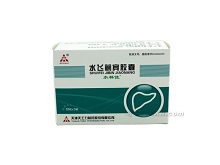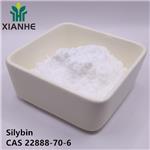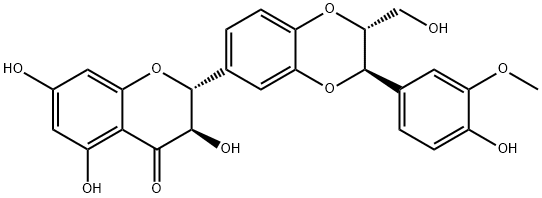The pharmacologic action of Silibinin
Silibinin (INN), also known as silybin (both from Silybum, the generic name of the plant from which it is extracted), is the major active constituent of silymarin, a standardized extract of the milk thistle seeds, containing a mixture of flavonolignans consisting of silibinin, isosilibinin, silicristin, silidianin, and others. Silibinin itself is a mixture of two diastereomers, silybin A and silybin B, in approximately equimolar ratio. The mixture exhibits a number of pharmacological effects, particularly in the liver, and there is some clinical evidence for the use of silibinin as a supportive element in alcoholic and child grade 'A' liver cirrhosis.

Pharmacologic action
The flavonoid silymarin and one of its structural components, silibinin, are substances with documented hepatoprotective properties. Their mechanisms of action are still poorly understood. However, the data in the literature indicate that silymarin and silibinin act in four different ways: (i) as antioxidants, scavengers and regulators of the intracellular content of glutathione; (ii) as cell membrane stabilisers and permeability regulators that prevent hepatotoxic agents from entering hepatocytes; (iii) as promoters of ribosomal RNAsynthesis, stimulating liver regeneration; and (iv) as inhibitors of the transformation of stellate hepatocytes into myofibroblasts, the process responsible for the deposition of collagen fibres leading to cirrhosis. The key mechanism that ensures hepatoprotection appears to be free radical scavenging. Anti-inflammatory and anticarcinogenic properties have also been documented.
Uses
Silibinin is available as drug (Legalon SIL (Madaus) (D, CH, A) and Silimarit (Bionorica), a Silymarin product) in some EU countries and used in the treatment of toxic liver damage (e.g. IV treatment in case of death cap poisoning); as adjunctive therapy in chronic hepatitis and cirrhosis.
Biotechnology
Silymarin can be produced in callus and cells suspensions of Silybum marianum and substituted pyrazinecarboxamides can be used as abiotic elicitors of flavolignan production.
You may like
See also
Lastest Price from Silybin manufacturers

US $0.00/KG2025-09-22
- CAS:
- 22888-70-6
- Min. Order:
- 1KG
- Purity:
- 97.0%
- Supply Ability:
- 50kg/month

US $0.00/kg2025-04-27
- CAS:
- 22888-70-6
- Min. Order:
- 1kg
- Purity:
- 0.99
- Supply Ability:
- 1000kg


